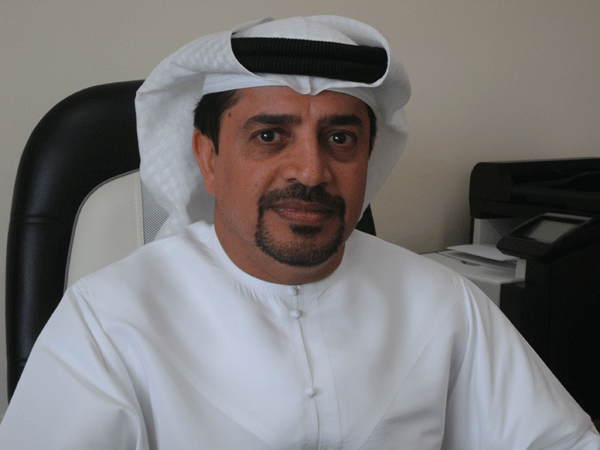The largest private medical care provider in the East Coast aiming higher still

As Fujairah grows in economic and population terms, one area still gives residents a pause for thought as standards in medical care, particularly the private sector, are still considered lagging behind larger emirates such as Dubai and Abu Dhabi.
One local company attempting to change that is Al Sharq Health Care, a subsidiary company of Fujairah National Group, owned by H.H. Sheikh Saleh Bin Mohammed Al Sharqi, Chairman of Department of Industry and Economy.
According to the Ministry of Health, the company became the first branded chain of hospital and medical centres in the UAE. Al Sharq Healthcare currently owns a 100-bed multi speciality hospital, 5 Medical Centres under the common brand name of ‘Al Sharq Medical Centre’, 4 pharmacies, 2 clinics and a Medicine Store under Marine Medical Division.
Al Sharq Hospital represents the latest and largest venture for the group. It has been semi-operational since January with officials hoping to be fully operational by July 2012.
Ahmed Al-Hafaiti, Deputy CEO of Al Sharq Healthcare spoke to Fujairah Observer about Al Sharq Hospital, and the company’s direction and aspirations in general.
Fujairah Observer: Tell us about the hospital. What medical services and facilities are on offer?
Ahmed Al-Hafaiti: Al-Sharq Hospital is the first 100-bed private general medical facility located in Fujairah to offer advanced medical care and emergency services. The hospital, when fully operational, will have a full-fledged Emergency Department, 21 Outpatient departments, ICU, NICU, Endoscopy, delivery suites and Day Surgery units. The hospital will offer both inpatient and outpatient care which covers Medical and Surgical Specialities. The state of the art diagnostic facility includes advanced and fully automated Laboratory equipments and Imaging unit equipments such as Open MRI, CT scan, Mammography, 4D-Ultrasound, Fluoroscopy.
F.O: What new medical services do you bring to the East Coast, if any?
A.H: We are the only medical care company to provide home medical care. We offer private nurses and ambulances are also available for transfers between various medical centres. Patients can request the home care whenever they feel it would serve them well and, in case it is approved by the doctors, this could include continuing treatment at home rather than at hospital for inpatients. This can be seen as a useful service by patients and their families for psychological and economic reasons, among other factors.
F.O: How many staff do you currently have and how many are you targeting to employ when the hospital is fully operational?
A.H: We currently employ about 150 administrative and medical staff. In the admin side we are trying to give nationals a priority and have reached a target of 80% nationalisation. This is to benefit local people and help them attain employment, which is one of the requests of H.H. Sheikh Saleh bin Mohammed Al-Sharqi. When the hospital is fully operational we estimate we would have 300 staff.
We’re aiming to employ medical staffs that are Arabic and English speakers do they can communicate better with all sectors of society, but of course, the most important thing is experience and competency.
F.O: How else, can you improve your medical care services and standards in view of competition from other providers in other emirates?
A.H: We’re seeking accreditation from the Joint Commission (TJC), formerly the Joint Commission on Accreditation of Healthcare Organizations (JCAHO), a United States-based organization that accredits health care organizations in the US and abroad. We also have affiliation with a number of European hospitals, such as in France Germany and Turkey. In addition, we’ve already had a visiting professor from Turkey and we will continue to have others coming in on a regular basis to help with training, teaching and operations.
F.O: In terms of costs, how would you rate your charges as a private medical care provider?
A.H: I think we’re competitive and, compared to other northern emirates, I can say that we offer 25% more affordable services. That’s impressive considering the quality of our facilities, equipment and staff which are, at least, as good as anything you’ll find in Dubai, for instance. In some cases we have more advanced equipments because as a new establishment we set out to acquire the best and latest.
F.O: What are the main difficulties that faced and still facing you as a private medical care provider in the East Coast?
A.H: There are a number of things; for example, we find that insurance companies tend to pay more for medical care in the larger emirates than they’re willing to do in Fujairah. The government increase of salaries for doctors, in addition to us having to pay higher wages to attract the best doctors, means we have a higher wages bill. A lack of residence visas for certain Arab countries has also delayed us in our recruitment process, but we’re actively seeking and recruiting doctors from other parts of the world and the Ministry of Health is helping us in speeding the process, which we appreciate.
F.O: Of course, you’re a private company, but what do you, or can you, provide to the community?
A.H: We aim to contribute to society as much as we can. We already provide free medical care services, such as nurses and ambulances, to some government held events such as the recruitment fare and other events which aim to serve the wider public. We will also be active in providing free health education, be it to schools or other organisations, to teach first aid or raise awareness.
At this point I would like to express our appreciation and gratitude to H.H. Sheikh Saleh bin Mohammed Al-Sharqi, who was eager to provide the best medical care services and facilities to the people of Fujairah, and the East Coast in general. His main motivation was not profit but to leave a legacy for the country and the people of this emirate; one that they can be proud of, and I think he has achieved this.
Fuad Mohammed Ali